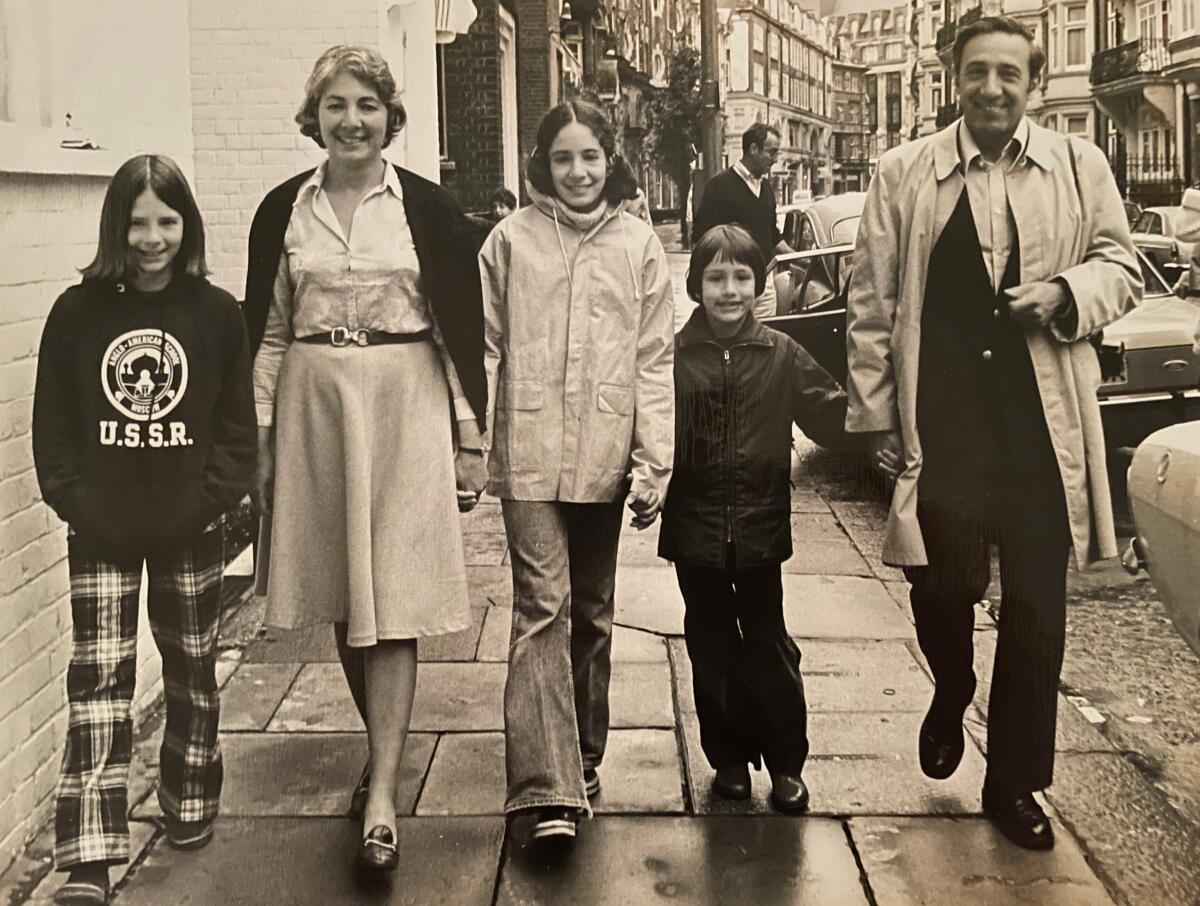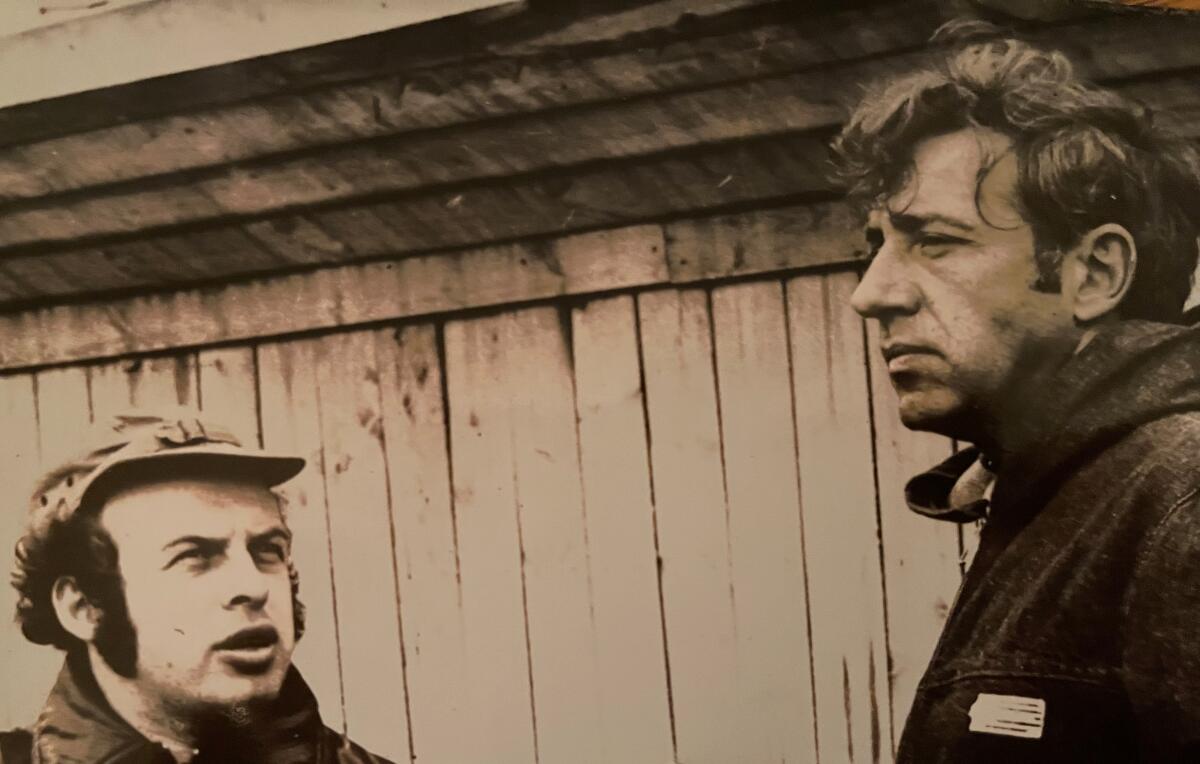Robert Toth, L.A. Times reporter falsely accused of spying by KGB in 1977, dies at 93

- Share via
Robert C. Toth, a veteran Los Angeles Times reporter and foreign correspondent who was swept into the headlines when he was arrested and interrogated for days by KGB agents on trumped-up espionage charges, has died at his home in Maryland.
An award-winning journalist who was among those whose work helped lift The Times to prominence, Toth died Sunday of heart failure, said his son-in-law Craig Whitlock, a reporter for the Washington Post. He was 93.
Toth was on the front lines for many of the most vital stories of the second half of the 20th century — the early days of the space program, the Nixon White House, the arms race, the Iran-Contra scandal and the Soviet Union’s unsparing repression of dissidents.
“Bob Toth was not only a gifted journalist, but a serious scholar as well,” said Doyle McManus, a Washington columnist for The Times who worked with Toth. “He was proudest not of his Moscow reporting, but of an important 1990 article on U.S. nuclear strategy he coauthored for International Security, a professional journal published by MIT.”
In June 1977, after wrapping up a three-year stint as a Times correspondent in the Soviet Union, Toth was preparing to leave the country with his wife and three young children when he was handed an envelope supposedly containing state documents from a person he believed was a Soviet researcher. He was immediately grabbed by four KGB agents and hustled off to Moscow’s notorious Lefortovo Prison.

Accused of being a spy, Toth was interrogated for days by his unsmiling captors, who pressed him repeatedly about his contact with Soviet dissidents, particularly Jewish human rights activist Anatoly Shcharansky. Toth later wrote that he quickly realized the espionage charge was just a ruse to get him to detail his association with Shcharansky.
Toth’s arrest made headlines around the world and drew rebukes from the White House and State Department. Supporters gathered in vigil outside the prison. As he was being interrogated, his family worried about what was to come.
Then, just as quickly as he’d been whisked off the streets, Toth was told he could leave the country.
“It ended on a ludicrous note” he later wrote in a first-person account of his ordeal. He said a member of the Soviet news agency Tass asked if he’d been treated fairly and wondered whether he would someday enjoy returning to the country.
Toth said he bit his tongue. But his escort from the U.S. Embassy did not.
“You forcibly detain him, interrogate him without allowing an American official to be present, accuse him of collecting secret political and military information … and you ask if it was fair?”
After Toth returned to The Times’ Washington bureau, Shcharansky was sentenced to 13 years in prison but later released in a prisoner swap in 1986. Shcharansky now lives in Israel.
The staged arrest and interrogation of American correspondent Nicholas Daniloff in Moscow by Soviet secret police on alleged spy charges have many of the earmarks of my own experience there nine years ago.
The son of a coal miner, Toth grew up in Throop, Pa., a small, sooty coal town near Scranton. His grandparents both suffered from black-lung disease and he wrote that early death was a common fate in Throop. Acid fumes drifted in the air, blistering the paint off of homes. Yellow sulfurous wastewater poured into the Lackawanna River and bodies of miners who died in cave-ins or explosions were placed in wagons and delivered to loved ones, along with $100 for burial expenses.
Toth enlisted in the Marine Corps. after World War II ended and got out of Throop. He later attended Washington University in St. Louis on the GI Bill and then earned a master’s degree at Columbia, were he studied journalism. He landed at the Providence Journal as a general assignment reporter and then moved to the New York Herald Tribune and the New York Times’ Washington bureau. He was hired by the Los Angeles Times in 1963.
Toth returned to his hometown in 1990 to take stock of its blemished environment. At first glance, he wrote, much had improved. The mines were gone. The towering piles of coal sludge had been leveled and turned into baseball diamonds. The carp, and even some trout, had returned to the river.
But another environmental hazard had arrived in the form of toxic waste that out-of-state factories were trucking to Throop and illegally pumping into the abandoned mine shafts. Meanwhile, garbage from Philadelphia, New York and New Jersey was being hauled to the small town and dumped on its outskirts. “We call the Throop dump the ‘magic mountain’ because it grew so fast,” one resident told Toth.
Along the way, Toth won numerous awards for his work, including the George Polk Award for his reporting in Moscow and Georgetown University’s Weintal Prize for his work with McManus on CIA operations in Central America. After retiring from The Times in 1993, he served as a fellow with the Pew Research Center for The People & The Press.
Toth is survived by Paula Goldberg Toth, his wife of 68 years; daughters Jessica Toth and Jennifer Toth; son John Toth; sister Barbara Polovitch and five grandchildren.
More to Read
Start your day right
Sign up for Essential California for the L.A. Times biggest news, features and recommendations in your inbox six days a week.
You may occasionally receive promotional content from the Los Angeles Times.








